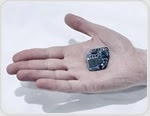| ||||||||||||||||||||||||||||||||||||||||||||||||
| ||||||||||||||||||||||||||||||||||||||||||||||||
| ||||||||||||||||||||||||||||||||||||||||||||||||
| ||||||||||||||||||||||||||||||||||||||||||||||||
| ||||||||||||||||||||||||||||||||||||||||||||||||
| ||||||||||||||||||||||||||||||||||||||||||||||||
viernes, 11 de enero de 2019
Medical News | Medical Articles | Parkinson's Disease - Jan 11, 2019 Edition
Medical News | Medical Articles
Suscribirse a:
Enviar comentarios (Atom)












































No hay comentarios:
Publicar un comentario